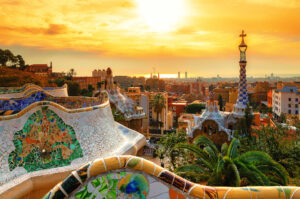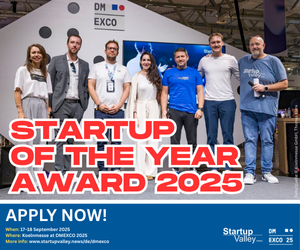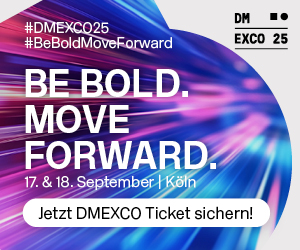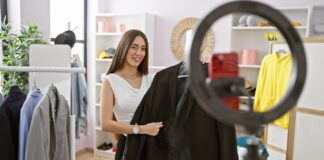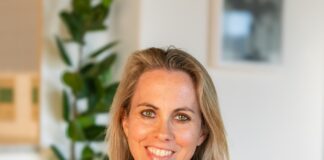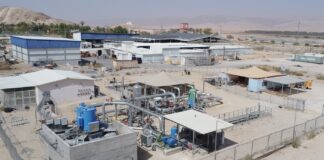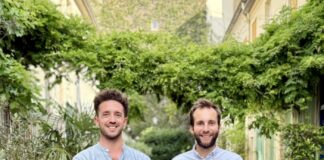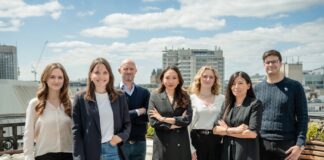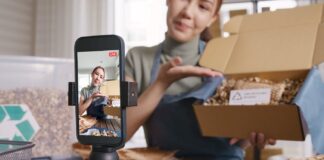A sustainability platform for the textile industry, a biodegradable packaging made of hemp and mycelium, an independent sourcing platform for sustainable packaging, a digital marketplace for used electrical and electronic equipment, a technology-driven platform to connect informal waste pickers to the recycled plastic market and a technological machine to analyse plastic composition – these are the ideas developed by the six Green Alley Award finalists of 2023.
The last finalist we’re introducing to you is Veridis from the Netherlands.
Veridis is developing a plastic analysis machine that revolutionizes (recycled) plastic quality control by scaling up sample sizes with a factor 100.000 enabling the use of recycled plastics in high value products. Veridis focuses on making currently unusable recycled plastics usable and giving insight into the daily recycling stream. Their aim is to help the plastic recycling industry by giving it a new (patented) analysis method to standardize material grading and certification.
With that, Veridis tackles the industry’s problems like unknown material properties, not being able to recycle dark plastics, time constraints, expensive and limited analysis options and uncertainty in quality control due to the complexity of all the different plastic types (Did you know there are more than 250 different plastic types that cannot be mixed together when making new high-quality products like foils or your shampoo bottles?).
The technological sector has great innovations! Every day, more and more companies bring new ideas and create new machines! What do you think makes your machine unique?
Our MADSCAN system is the first analysis technology specifically developed to analyse plastics and at large, representative volumes. Existing methods are not specialized in just plastics, they just happen to also analyse plastics and are effective at a small scale or in controlled laboratory environments. The plastic recycling industry, however, is not a controlled environment.
The current analysis methods are not designed for large-scale high-quality plastic recycling and, therefore, fall short when the industry needs reliable, continuous material information. This leads to performance issues when the performance of the material does not match with what the analysis says. Due to this, using recycled content in high-quality products is risky because we never exactly know what we are recycling in the first place. The industry tells us that we need a standardized method to grade and certify material reliably and we believe we can enable this with our technology.
You are planning to get a patent on your technology, what are your next steps afterwards?
Actually, since our application a long time ago, our patents has been approved, meaning that we can now say that indeed, our MADSCAN technology is patented! However, we have found additional patentable findings. We are now in the process of building the commercial systems and building our database, but these other findings will be combined into a larger patent for the whole system, further solidifying the robustness and protection of our technology.
How do you improve plastic recycling? Can you please explain the process in simple words.
In short, Veridis works towards standardising material grading and certification so that the plastic recycling industry can better grade and also price their materials for specific products in which we cannot reliably use recycled materials yet.
When you want to make something, you need to have a ‘recipe’ and have the right ingredients so that you can produce a reliable quality. What do we put in, how well does the production process function and what comes out? That will also allow you to guarantee the quality to your buyers. But, plastics are complex products, and just 3% of unwanted impurities makes a batch unusable for high-quality products. Knowing what you buy, produce and sell is of vital importance to assure product quality and safety. Because our technology can measure accurately what’s in a larger batch, we give our clients the following benefits to improve their recycling processes and make their products more valuable.
1. What comes in.
A client can measure the incoming batches of plastic flakes before they enter their production process. With the exact insight they get from the MADSCAN analysis, they can make sure that the material they bought will be of the right quality and not disrupt their production process. If it’s not the quality they need, they can also give back this information to their supplier so that they can uphold their quality better with future batches.
2. Better production processes.
A client can measure the quality and composition of material entering their production process and measure again the outcoming product and see how well their process performs. Does the quality or composition change, does it stay the same or does it improve etc.
3. Better material grading and quality assurances.
A client can give a reliable certificate of product composition and quality, especially for high-quality products where recycled plastics are barely used today. There is not reliable standardized method for this now, which makes product producers less likely to use recycled plastics in their products or forces them to conduct extra tests themselves. The first frontrunner(s) in the market who will be able to provide this new standard and quality will capture the largest value in the coming years as we transition to a circular economy.
Creating a startup is not an easy task and there are many challenges. So far, what has been the greatest challenge you had to overcome?
As a deep tech start-up developing a new technology, we do have higher development costs. We have been able to come up with creative solutions to bootstrap our technology, but securing funding with the right partners is of course and ongoing process that we need to balance. Also, the market is vast and complex and we get many requests and questions if we can measure X or Y and if we can do this or that etc.
Staying on track and making adjustments based on what the market really needs without losing focus by focusing on too many challenges at once is also something that we have to stay sharp on. Resources and time are limited and we cannot chase every bone that we see, even if we’d like to. Winning the final would definitely help us to hire more crucial engineers to develop faster and bring our product to the market faster!
Please complete our sentence: The world needs a circular economy because…
Because it’s the only just thing to do, for ourselves and the billions of humans that will still be born on this planet after us.
Would you like to meet Veridis and experience the award ceremony live in Berlin? Register now for the event: https://green-alley-award.com/event-registration/



